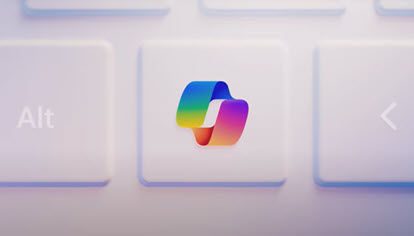Microsoft is making a substantial wager on artificial intelligence by requiring PC manufacturers to include a dedicated ‘Copilot’ key on Windows laptop keyboards. The key will provide direct access to Microsoft’s AI-powered digital assistant, displacing the traditional ‘Menu’ key previously found in that location.
This strategic move shows Microsoft’s conviction that AI-enabled software will fundamentally transform how people interact with PCs. The company envisions the Copilot assistant, which can generate text and code, becoming as integral to the Windows experience as the traditional Windows key.
By using its certification leverage over hardware partners, Microsoft has rapidly elevated Copilot’s prominence in the Windows ecosystem. Every new Windows laptop will feature quick access to Copilot via this dedicated key, whether from Microsoft itself or third-party manufacturers like Dell and HP.
Crucially, this comes as new laptop processors from AMD, Intel and Qualcomm incorporate dedicated AI acceleration hardware, or neural processing units (NPUs). With Copilot keys and NPUs soon ubiquitously found in new Windows portables, Microsoft is signaling its platform will increasingly tap AI to enhance applications and the user experience.
The hardware groundwork that Microsoft and its partners are laying sets the stage for AI to permeate into every corner of the Windows environment. Indeed, Microsoft itself stated that “new system architectures” are now in place to “power new Windows AI experiences,” incorporating the synergistic capabilities of GPUs, CPUs, NPUs and cloud acceleration.
By elevating Copilot to be on par with integral Windows functions like Search, Microsoft is essentially teaching consumers to view AI as a customary and indispensable tool for productivity, programming and general workflow on PCs. This normalization has the potential to rapidly advance adoption and daily usage.
With formidable rivals like Google making similar moves, Redmond cannot afford to neglect emerging technologies like generative AI in its flagship OS. By putting its thumb on the scale via mandated hardware changes, Microsoft leaves no doubt that intelligence-enhanced software is viewed as an indispensable investment.
If this strategic gamble pays dividends by popularizing Copilot and its ilk, Microsoft would gain first-mover position in seamlessly blending AI into the fabric of personal computing. By contrast, failure to have AI meaningfully reshape Windows could cede crucial ground to rival platforms in the next era of computing. The company has made its choice – AI first.

